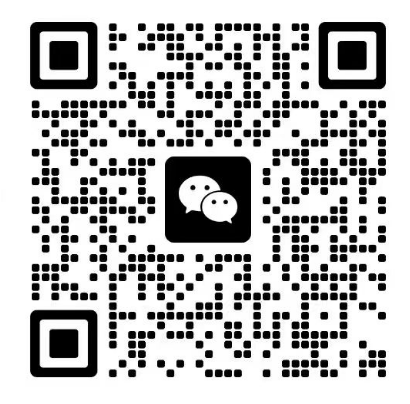2022年海南自考4月《英语》真题 · 2

《自考视频课程》名师讲解,轻松易懂,助您轻松上岸!低至199元/科!
2022年海南自考4月《英语》真题 · 2
Read the following passage carefully and complete the succeeding three items II, II, IV.
(1) The confidence people place in science is frequently based not on what it really is, but on what people would like it to be. When I asked students at the beginning of the year how they would define science, many of them replied that it is an objective way of discovering certainties about the world. But science cannot provide certainties. For example, a majority of Americans trust science as long as it does not challenge their existing beliefs. To the question “When science disagrees with the teachings of your religion, which one do you believe?," 58 percent of North Americans favor religion; 33 percent science; and 6 percent say“it depends."
(2) But doubt in science is a feature, not a bug. Indeed, the paradox is that science, when properly functioning, questions accepted facts and yields both new knowledge and new questions-not certainty. Doubt does not create trust, nor does it help public understanding. So why should people trust a process that seems to require a troublesome. state of uncertainty without always providing solid solutions?
(3) As a historian of science, I would argue that it's the responsibility of scientists and historians of science to show that the real power of science lies precisely in what is often perceived as its weakness: its drive to question and challenge a hypothesis. Indeed, the scientific approach requires changing our understanding of the natural world whenever new evidence emerges from either experimentation or observation. Scientific findings are hypotheses that encompass the state of knowledge at a given moment. In the long run, many of them are challenged and even overturned. Doubt might be troubling, but it impels us towards a better understanding; certainties, as reassuring as they may seem, in fact undermine the scientific process.
(4) Scientists understand this, but in the dynamic between the public and science, there are two significant pitfalls.
(5) The first is a form of blind scientism- that is, a belief in the capacity of science to solve all problems. The popular narrative of science is linear, embodied by heroic researchers who work selflessly for the good of humanity. Indeed, some scientists promote this attractive public image of their work. But this narrative ignores the ubiquity of controversy, conflict and error at the very heart of the scientific world. Such an idealized representation tends to turm science into an unquestionable set of beliefs. In fact, however, the power of science lies precisely in its capacity to generate discussion and even discord.
(6) The second pifall is a form of relativism borne out of a lack of confidence in the very existence of truth. It develops when science is divorced from method and viewed as just another claim in the marketplace of ideas. A Pew Research study shows that 35 percent of Americans think the scientific method can be used to produce “any result a researcher wants." Once the scientific approach has been delegitimized, then all hypotheses, including the most outlandish and irrational ones, can be taken as credible. So, hidden in this conceit of a democratic “marketplace of ideas" is a particularly virulent form of relativism that approaches nihilism.
(7) Such examples of relativism about issues including climate change and, most recently, the COVID-19 pandemic-have significantly contributed to the proliferation of fake news and conspiracy theories. The diffusion of fake news is facilitated by the difficulty of a large majority of Americans in distinguishing between fact and opinion. Factual news can be proved or disproved by objective evidence, while opinion is an expression of the beliefs and values of the speaker.
(8) In an effort to combat misinformation, scientists may overcompensate by accelerating their research. or publicizing their findings prematurely. This can spur dialogue about science, but with serious side effects. The scientific process itself has been called into question during the pandemic in cases where the very institutions and peer review process that were supposed to check scientific results failed to detect scams.
(9) So how to regain public trust in science when the public is looking for certainties and when those who are supposed to impersonate doubt seem to be fickle or dogmatic? A more realistic understanding of how science works can contribute to a better comprehension of the decisive role of doubt and skepticism in the scientific process. Indeed, science is not a linear path leading from one success to another, but rather a constant revaluation of hypotheses. Failures are part of the scientific process and should be taught along with successes.
(10)It is, therefore, not so much the content of scientific discoveries that should be highlighted, but the understanding of the scientific process itself that must be enhanced. No one expects the public at large to fully understand all discoveries or to. be able to arbitrate between possible treatments. But what must be reaffirmed is that in science, doubt is not a vulnerability but a strength. The scientific approach often leads to dead ends, but sometimes it leads to fundamental discoveries that no other approach has ever achieved.
II. In this section, there are ten incomplete statements or questions, followed by four choces marked A, B, C and D. Choose the best answer and write the corresponding letter on your Answer Sheet. (20 points, 2 points for each)
16. Most Americans believe in science when _________
A. it tells them the truths of the world
B. it gives them the confidence they need
C. it is consistent with their existing beliefs
D. it confirms their certainties about the world
17. What can be learned from Paragraph 3?
A. Historians are to find the weakness of science.
B. Scientific findings are infrequently challenged.
C. Uncertainties prevent science from progressing.
D. Doubt fosters a better understanding of the world.
18. In Paragraph 5, the word“ubiquity" means
A. being present everywhere
B. the distinct character
C. being the specific one
D. the inherent quality
19. According to Paragraph 5, the author tends to agree that
A. researchers are usually selfless heroes
B. we should not hold firm belief in science
C. there should be no error in scientific work
D. science needs discussion and disagreement
20. In Paragraph 6, the word“divorced" means.
A. derived
B. prevented
C. separated
D. generated
21. The study mentioned in Paragraph 6 shows that some Americans believe that
A. many seemingly outlandish hypotheses are actually credible
B. the so-called nihilism is practically a varied form of relativism
C. scholars can manipulate the scientific method to yield desired results
D. a democratic marketplace of ideas is usually hidden behind relativism
22. In Paragraph 9, the word“fickle”means
A. sensitive
B. changing frequently
C. innovative
D. not caring about others
23. In which of the following might this passage most likely appear?
A. A journal.
B. A circular.
C. An anthology.
D. A brochure.
24. What is the author 's tone in writing this passage?
A. Sarcastic.
B. Objective.
C. Passionate.
D. Humorous.
25. Which of the following might be the best title for this passage?
A. What Blind Scientism Is
B. The Importance of Science
C. Science Versus Religion
D. Doubt Is Essential to Science
本文标签:海南自考 公共课 2022年海南自考4月《英语》真题 · 2
转载请注明:文章转载自(http://www.hainanzikao.net)
《海南自考网》免责声明
1、由于各方面情况的调整与变化,本网提供的考试信息仅供参考,考试信息以省考试局发布的信息为准。
2、本网信息来源为其他媒体的稿件转载,免费转载出于非商业性学习目的,版权归原作者所有,如有内容与版权问题等请与本站联系。联系邮箱:812379481@qq.com。










